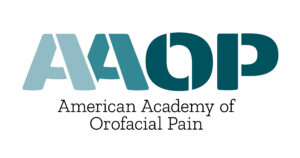Dr. Davis Thomas completed his Bachelor of Dental Surgery (BDS) from India. He received his Doctor of Dental Surgery (DDS) degree from New York University. In 1998, he went on to complete one year of Advanced Education in General Dentistry at NYU. In 2002, he established his first practice in Oakhurst, NJ and while in private practice, he took several Continuing Education courses at reputed US dental and medical schools in the field of TMJ/TMD and Orofacial Pain. He went on to complete Post Graduate Fellowship and Masters in TMD and Orofacial Pain at the University of Medicine and Dentistry of New Jersey (UMDNJ) in 2005. Dr. Thomas completed his Masters in Sleep Medicine (MSc Med) with the University of Sydney, Australia in 2016. In 2019, he completed his Masters (MSc) in Clinical Pain Management under the University of Edinburgh, UK. Dr. Thomas now continues his research in Pain Management at Rutgers School of Dental Medicine, where he is also an Assistant Clinical Professor in the Diagnostic Sciences Division. The experience and education Dr. Thomas has acquired over the years has allowed him to lecture extensively all around the world. He has been a commissioned officer in the United Sates Army since 2001. He is also an Attending at Monmouth Medical Center in Long Branch, NJ and at Jersey Shore University Medical Center. Dr.Thomas is currently a distinguished professor at Sechenov Medical University, Moscow, Russia; adjunct clinical professor at the Rochester Medical School and he is an adjunct faculty at College of Dental Surgery, Manipal, India. Currently, he is the director for OFP/TMD/Sleep medicine courses for Roseman University/Smile USA Academy.
The last five decades have seen outstanding research in pain medicine and explosive research in sleep medicine. As the scientific knowledge of pain and sleep physiology has expanded, so has the revelation that they are integrally related to each other. Sleep and pain are shown to have a bi-directional relationship. Simply stated, whatever affects pain, affects sleep, and vice versa. The brain centers that control sleep are integrally related to those that are involved in the experience of pain. There are robust cross overs between the two entities in terms of the intricate neural networks, the complex neurotransmitter interactions and similar and common pathways. Any medication or other management modality on one invariably affects the other entity. Currently, the guidelines for a possible evaluation of one based on the other are non-existent or ambiguous, primarily due to lack of consensus and co-ordination amongst various organizations related to both fields. The field of orofacial pain is not much different either. This presentation is meant to summarize in the most possible concise way, the inter-relationship between sleep and pain, and their applications in the orofacial pain practice.
Learning objectives
-To have a good basic understanding of sleep-pain interactions.
-To have an overview of the latest literature in sleep-pain relationships.
-To enumerate the possible applications of these interactions in an orofacial pain practice.
-To point out possible future prospects of clinical and research features of these interactions.



Leave A Comment